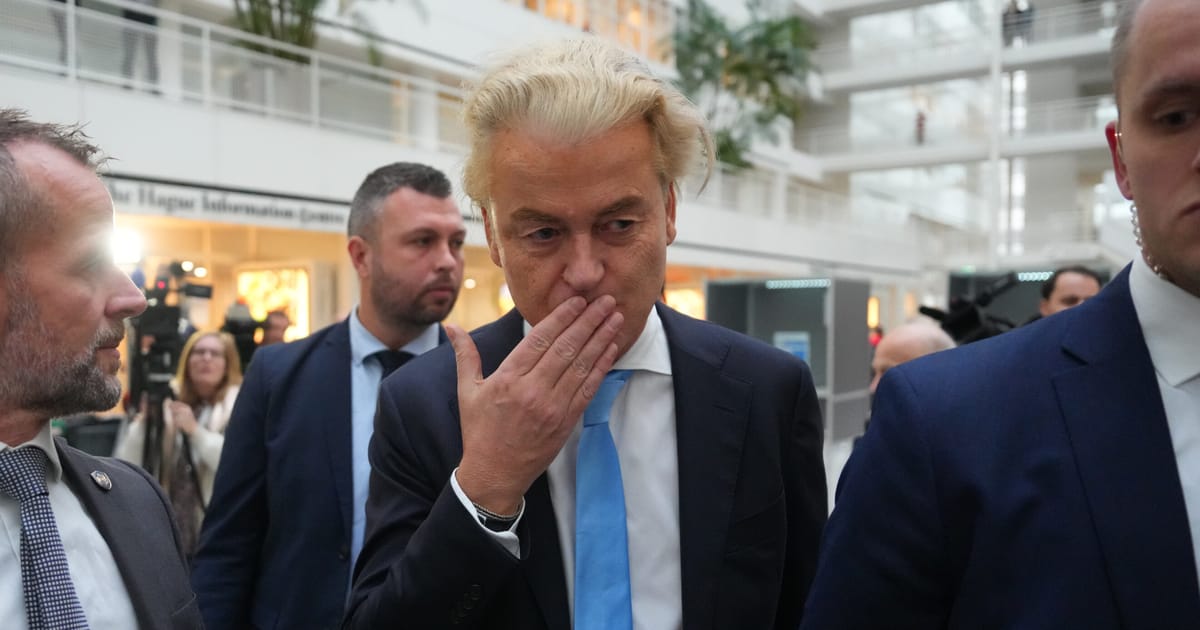The anti-Islam, euroskeptic radical Geert Wilders is projected to be the shock winner of the Dutch election.
In a dramatic result that will stun European politics, his Freedom Party (PVV) is set to win around 35 of the 150 seats in parliament — more than double the number it secured in the 2021 election, according to exit polls.
Frans Timmermans’ Labour-Green alliance is forecast to take second place, winning 25 seats — a big jump from its current 17. Dilan Yeşilgöz, outgoing premier Mark Rutte’s successor as head of the center-right VVD, suffered heavy losses and is on course to take 24 seats, 10 fewer than before, according to the updated exit poll by Ipsos for national broadcaster NOS.
A win for Wilders will put the Netherlands on track — potentially — for a dramatic shift in direction, after Rutte’s four consecutive centrist governments. The question now, though, is whether any other parties are willing to join Wilders to form a coalition. Despite emerging as the largest party, he will lack an overall majority in parliament.



There’s a few definitions but this is the first one in quite a few dictionaries and on Wiki
While Wikipedia mentions that power rests with the public (hence the name) instead of a monarch:
Those are two different things.
Would you argue that the head of the state of the Netherlands is the king? It being written to be so doesn’t mean it is so in practice.
Would I argue that the king is the head of the state of the Kingdom of the Netherlands? Obviously?
Sure that’s in paper. But does he head the state? North Korea is also a democratic republic if you go by the official definition…
I’m from Belgium, which is also a kingdom, but our king has absolutely no power. The state is headed by the federal government, not by the king, in practice. I would imagine that to be the case in the Netherlands too.